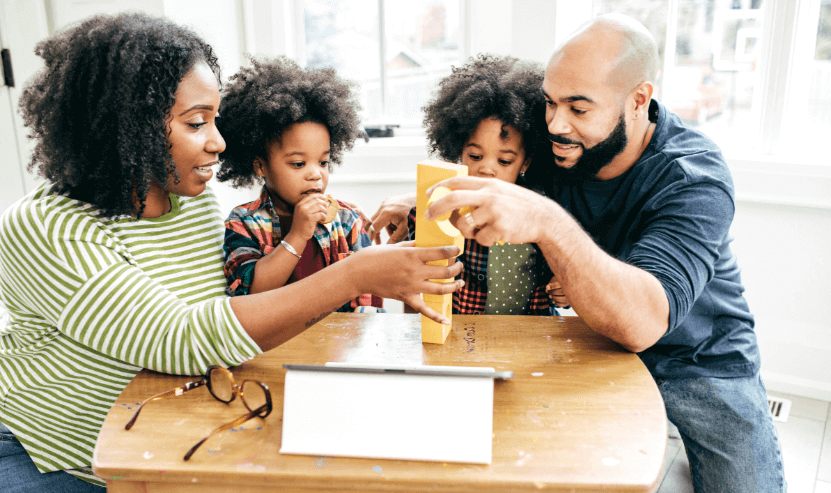Communication plays a vital role in fostering positive relationships and understanding between kids, parents, and students. Whether it’s a casual conversation or a serious discussion, effective communication is key to ensuring everyone’s needs and concerns are addressed. In this article, you will discover helpful tips and strategies that can enhance your communication skills, enabling you to connect with others on a deeper level and build stronger relationships within your family and academic life.
Communication between Kids, Parents, and Students
Effective communication is essential for building strong and healthy relationships between kids, parents, and students. Communication provides a platform for understanding, resolving conflicts, and fostering trust and openness. In this article, we will explore several tips and strategies to improve communication within these relationships.
the Importance of Communication
Communication plays a vital role in our everyday lives, but its significance within the family and educational context cannot be emphasized enough. It is the foundation upon which relationships are built and nurtured. Effective communication allows kids, parents, and students to express their thoughts, feelings, and concerns, ensuring that everyone has a voice and their needs are met.
Creating an Open and Trusting Environment
To foster effective communication, it is crucial to create an open and trusting environment within the family and school settings. This involves establishing an atmosphere where everyone feels comfortable expressing themselves without fear of judgment or negative consequences. Encouraging open dialogue, active listening, and mutual respect strengthens trust and encourages honest communication.

Active Listening Skills
One of the key elements of effective communication is active listening. To truly understand the perspectives of others, it is important to listen attentively and without interruption. When engaging in a conversation with kids, parents, or students, give them your undivided attention, maintain eye contact, and show genuine interest in what they have to say. Paraphrasing and summarizing their thoughts can also help demonstrate that you are actively listening and have understood their message.
Effective Verbal Communication
Engaging in effective verbal communication involves using clear and concise language to convey your thoughts and emotions. When conveying a message, it is crucial to choose your words carefully and be mindful of the impact they may have. Use a respectful and kind tone, focusing on the issue at hand rather than attacking or blaming the individual. Additionally, being mindful of the timing and context of your communication ensures that your message is received positively.

Non-Verbal Communication
Non-verbal communication plays a significant role in conveying messages accurately. Actions, facial expressions, and body language can sometimes express more than words alone. Pay attention to your non-verbal cues and encourage kids, parents, and students to do the same. Maintaining eye contact, using appropriate gestures, and displaying positive body language can enhance understanding and strengthen the connection between individuals.
Using Technology to Enhance Communication
In today’s digital age, technology can be used as a powerful tool to enhance communication between kids, parents, and students. Utilizing communication platforms like email, text messaging, or video conferencing can help bridge the gap between home and school. It allows for convenient and timely communication, especially when face-to-face interactions are not feasible. However, it’s important to strike a balance and ensure that technology does not overshadow the importance of personal, in-person communication.
Setting Realistic Expectations
Having realistic expectations is vital in facilitating effective communication. Each individual has their own unique communication style, and it is essential to respect and understand these differences. Setting unrealistic expectations often leads to frustration, disappointment, and ineffective communication. By recognizing and accepting that everyone communicates differently, we can adjust our own communication approach and find common ground for effective interaction.
Regular Family Meetings
Regular family meetings can provide an opportunity for open communication and problem-solving within the family unit. These meetings allow everyone to have a voice, express their opinions, and contribute to decisions that affect the family as a whole. They provide a platform for discussing important topics, resolving conflicts, and fostering a sense of unity and collaboration. By dedicating time for family meetings, you show your commitment to effective communication and the well-being of your family.
Resolving Conflicts through Communication
Conflict is a natural part of any relationship, but it’s how we handle it that matters. Effective communication serves as a powerful tool for resolving conflicts in a healthy and constructive manner. Encourage kids, parents, and students to express their concerns openly and honestly, and aim for a win-win resolution. Active listening, empathy, and finding common ground are essential in finding mutually beneficial solutions that satisfy everyone involved.
Seeking Professional Help when Needed
While effective communication can resolve many issues within relationships, there may be times when professional help is necessary. If communication difficulties persist or become overwhelming, seeking the guidance of a therapist, counselor, or mediator can provide valuable support. These professionals can offer specialized strategies, guidance, and techniques to improve communication and address any underlying issues that may be hindering effective communication within the family or educational setting.
Conclusion
effective communication is the key to building strong and healthy relationships between kids, parents, and students. By understanding the importance of communication, creating an open and trusting environment, practicing active listening skills, utilizing effective verbal and non-verbal communication, and using technology wisely, we can enhance communication within these relationships.
Setting realistic expectations, engaging in regular family meetings, resolving conflicts through communication, and seeking professional help when needed further contribute to effective communication. Remember, effective communication is a journey that requires ongoing effort, patience, and understanding, but the rewards are well worth it.





